10 Best Foods With Natural Probiotics (Eat For Gut Health)
Probiotics are an essential part of a healthy diet. Learn about the benefits of probiotics and which foods contains the most natural probiotics that can benefit your gut health. These foods include sauerkraut, kefir, kimchi, miso, yogurt, tempeh, kombucha, fermented vegetables, raw cheese, and natto.
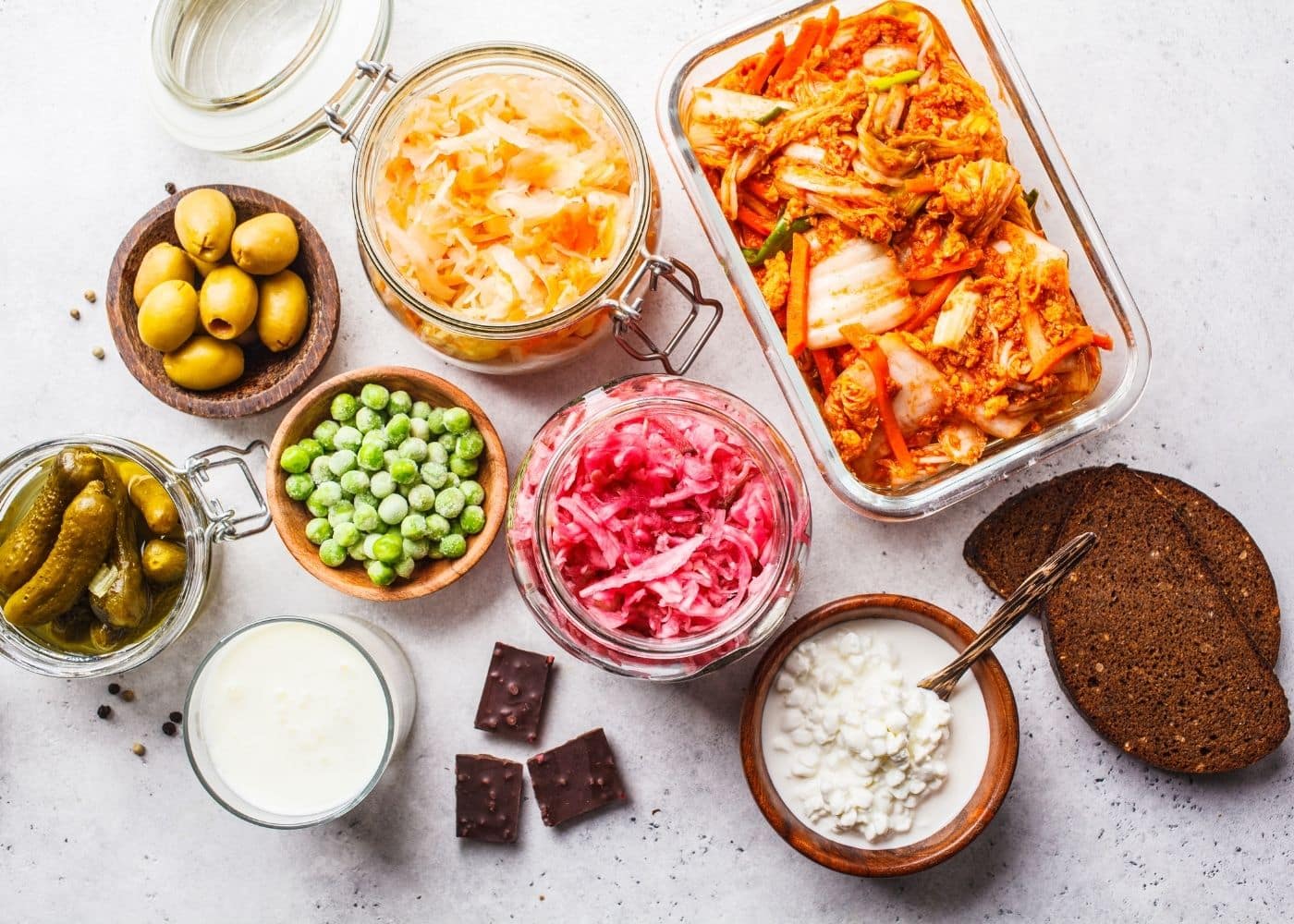
Probiotics Overview
Probiotics are small, living microorganisms that help your gut flora remain healthy.
Our guts are populated with bacteria, both good and bad. Probiotics are the good bacteria that keep the bad bacteria in check, ensuring your gut health remains intact.
Additionally, good bacteria line and help seal the gut to keep your gut lining strong and selectively permeable.
A balanced gut microbiome with plenty of probiotic bacteria keeps your digestive system healthy, your skin clear, and your immune system strong.
You may have heard of a “leaky gut” which is when the lining of the gut becomes weak or penetrable, allowing compounds to escape from the intensities into the bloodstream. This can cause a variety of issues and is not a good state.
Learn more about the best Leaky Gut Diet, along with a meal plan to help resolve it.
Natural Probiotics
Natural probiotics are those probiotics that occur in food and in the dirt.
As humans, we have actually evolved to ingest soil-based organisms as our source of natural probiotics and live microorganisms. This includes trace amounts of organic dirt on your vegetables or incidental ingestion from working or being outside near grass and soil.
These naturally occurring probiotics and beneficial bacteria populate our gut and keep us healthy. After all, our ancestors long ago didn’t have access to probiotic dietary supplements; they got everything they needed from their natural environment and foods.
See my related article on How to Follow an Ancestral Diet.
The good news is that we have access now to both: probiotic supplements and probiotic-rich foods.
But, as mentioned, certain foods have naturally occurring probiotics that can help you diversify your diet and keep your gut health and digestive health strong!
Best Foods With Natural Probiotics
In this list of the best foods with probiotics, you’ll find natural healthy bacteria in fermented or traditionally prepared foods. The process of fermentation is what populates these foods with probiotic bacteria. Fermentation has been around for millennia as a way to naturally preserve food.
During the fermentation process, the carbohydrates in the food begin to break down and interact with bacteria. The result is a tangy, often sour food that doesn’t expire easily. It’s also now filled with probiotics, which help the food’s nutrient bioavailability.
Let’s review ten of the best foods to find natural probiotics.
You may also like this article with the best gut healing foods, especially if you are one of the many people who suffer from digestive issues.
1. Sauerkraut
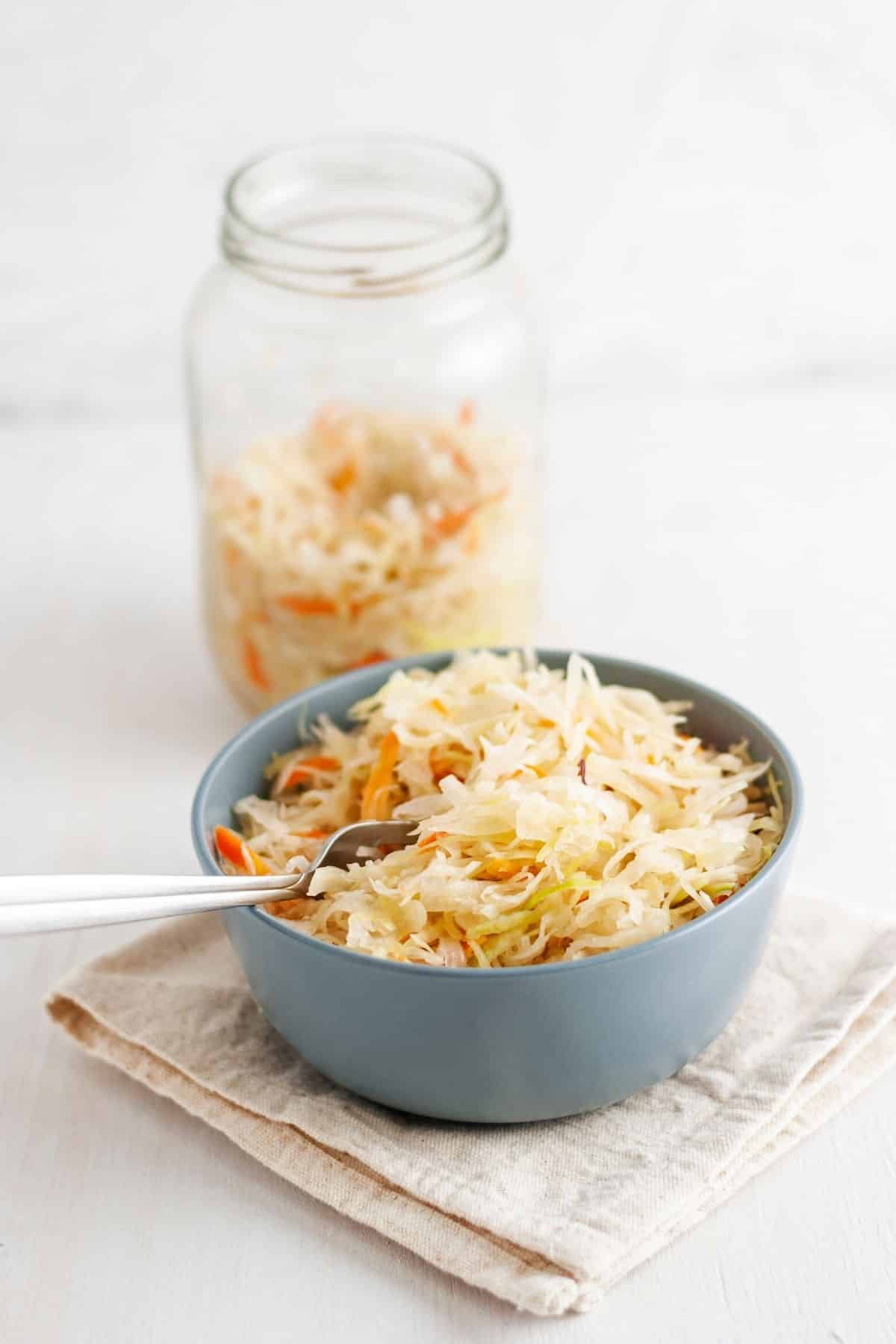
One of the world’s oldest fermented foods, sauerkraut or fermented cabbage, has origins in Asia. Sauerkraut is especially high in lactic acid, a source of probiotics. It’s also high in Vitamins K, A, B, and C.
Sauerkraut is tangy and somewhat crunchy and is best enjoyed as a condiment or a side dish.
If you purchase your sauerkraut, make sure it is from the refrigerator section of your local grocery store and that the label states that it includes active cultures.
2. Kefir
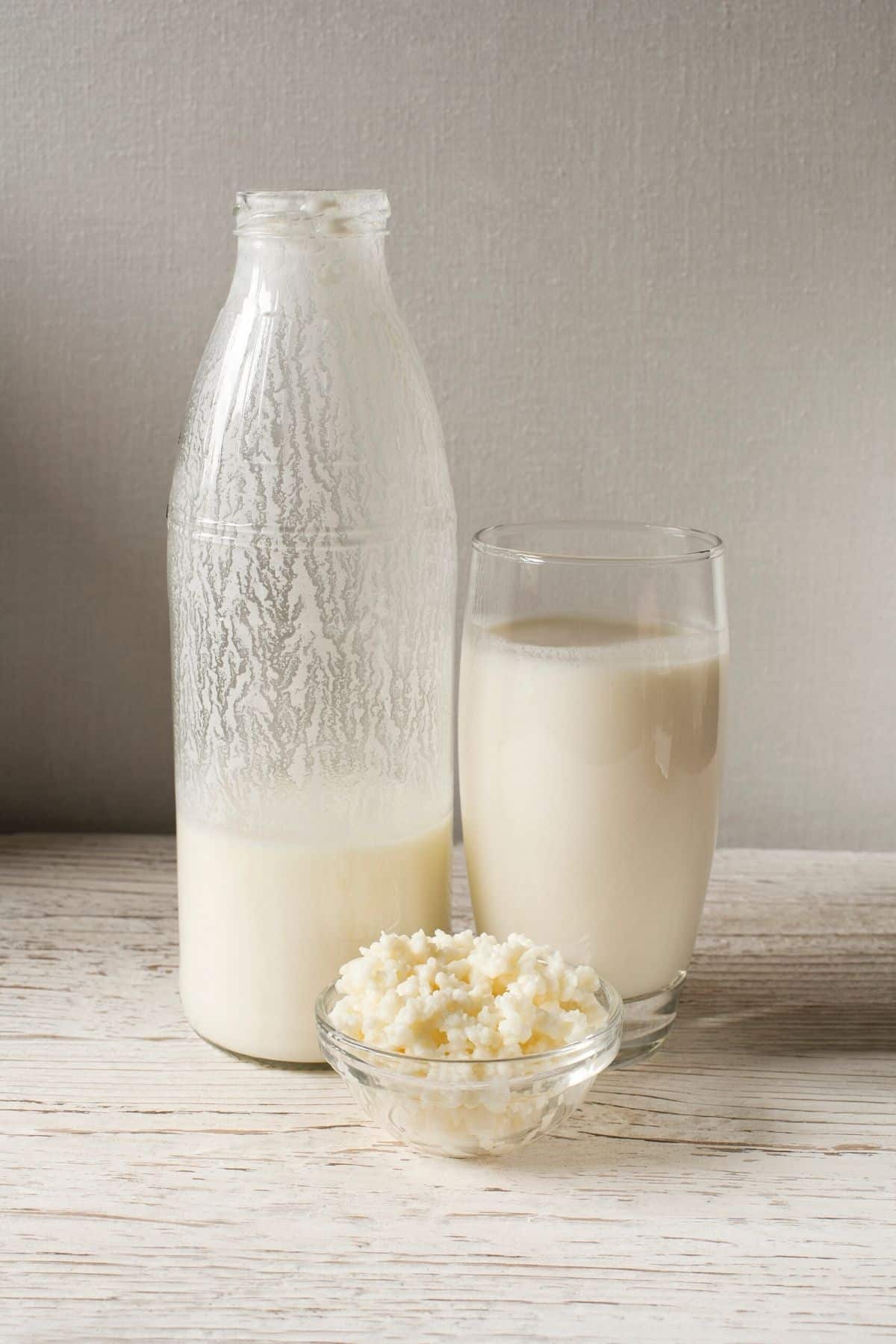
Kefir is a drinkable source of probiotics, made from fermented milk or water using kefir grains.
Kefir is often made with cow’s or goat’s milk, but can also be made from dairy-free milk such as coconut milk, or even water. It was originally developed in Eastern Europe, but can be found worldwide now.
Kefir is the only source of a beneficial probiotic strain known as Lactobacillus Kefiri. It’s also high in B vitamins and is even more probiotic- and nutrient-dense than its cousin, yogurt.
It’s one of the best probiotic products you can consume.
3. Kimchi
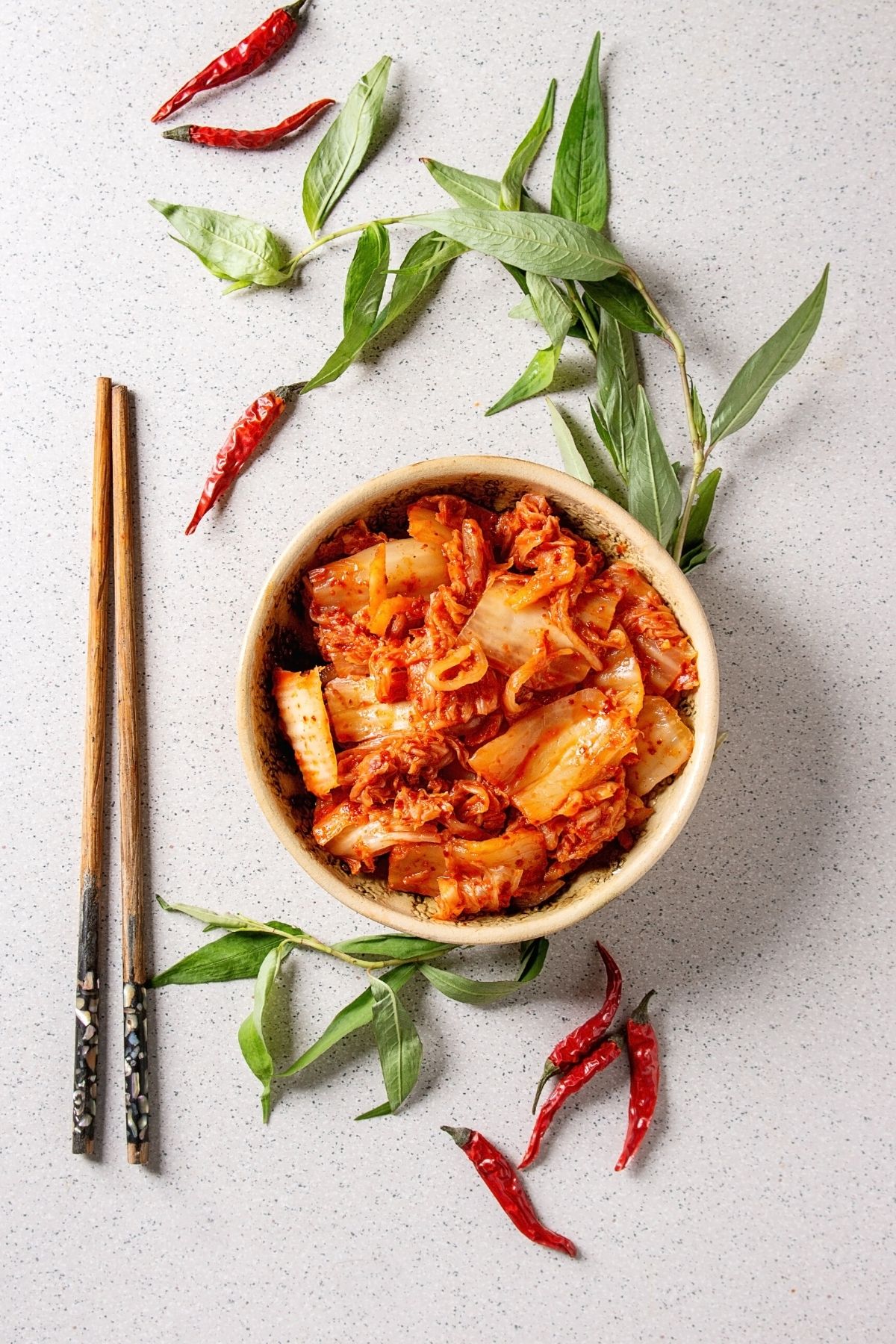
Kimchi is a traditional Korean dish made from cruciferous vegetables such as cabbage and radishes, combined with spices such as red pepper and ginger.
The result is a spicy, tangy dish resembling spicy sauerkraut filled with lactic acid-based probiotics. The fermentation also makes the B vitamins and C vitamins in the food more bioavailable.
You can find prepared kimchi in the refrigerator section of most grocery stores. Or, you can make your own!
4. Miso
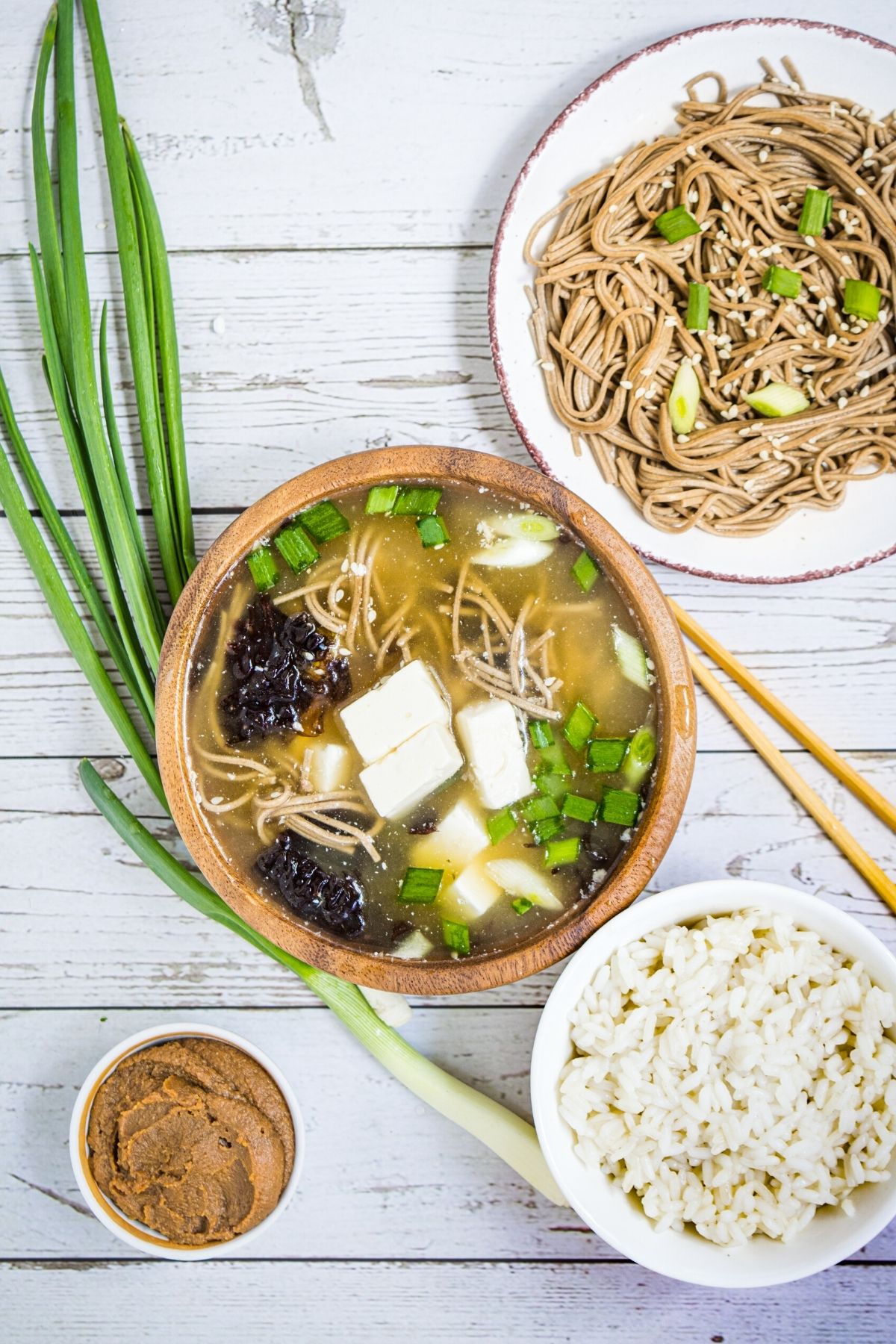
Miso is a paste made from fermented soybeans used to flavor Japanese dishes like miso soup and salads. It has a salty, umami flavor and boasts an impressive nutrient profile.
Miso is rich in Vitamin K and other hard-to-get micronutrients like manganese, copper, and zinc.
Fermented soy foods like miso have also found to have less negative effects than unfermented soy products.
5. Yogurt
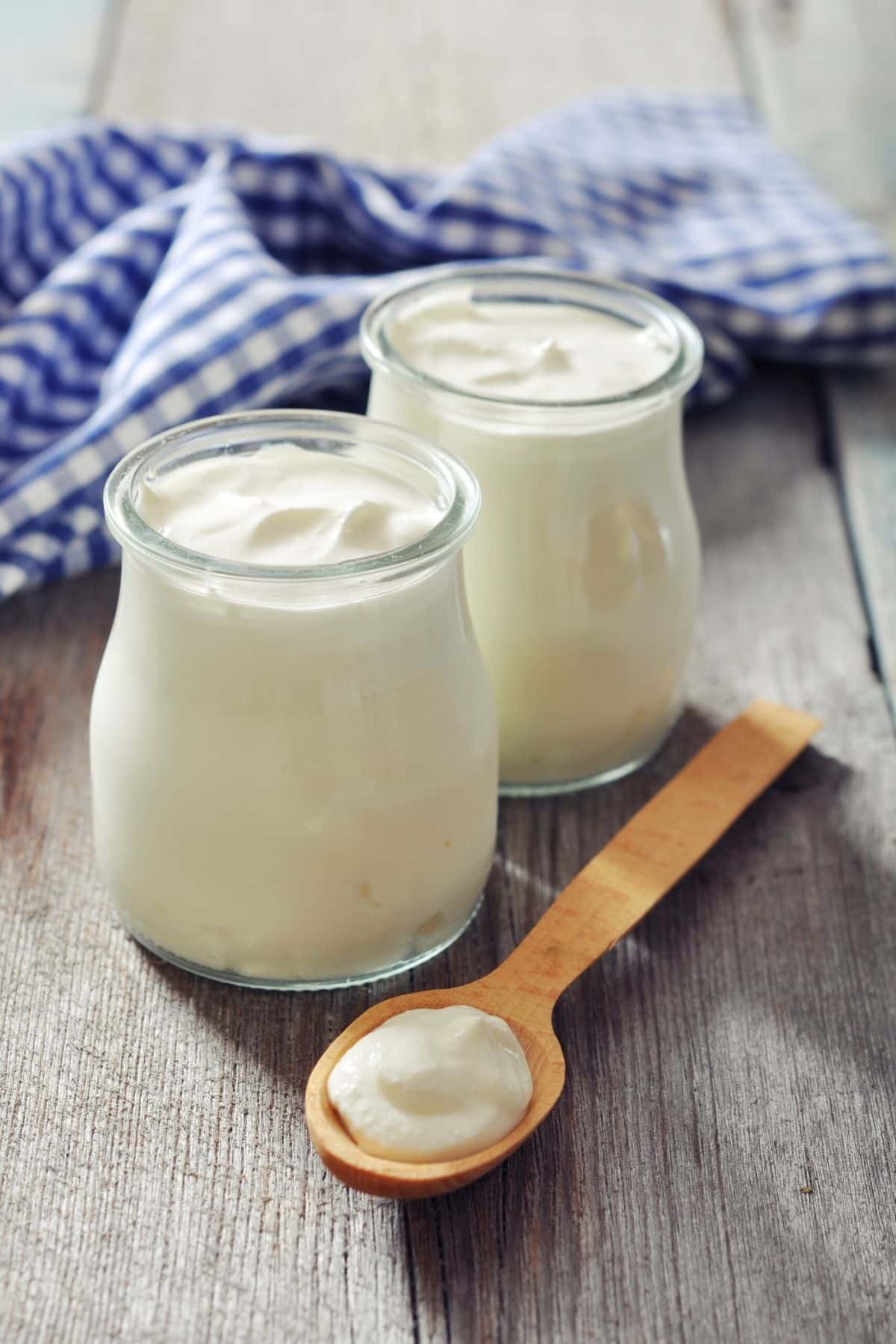
The most popular source of naturally-occurring probiotics and live cultures, yogurt is a fermented milk product that has been made by humans for a very long time.
Like kefir, yogurt is usually made from cow’s milk, though it can also be made from goat’s, sheep’s, or non-dairy milk. You can even find cashew milk yogurt or coconut milk yogurts at the store now.
The fermentation process can make milk product more easily digestible for those with lactose sensitivity because the bacteria breaks down the milk sugar.
Yogurt is naturally tangy and quite sour, but can be sweetened or made more savory depending on preference. Dairy-based yogurt is especially high in vitamins D and K, along with potassium and calcium.
You can consume regular yogurt or Greek yogurt to get the live bacteria into your digestive tract. See my list of gut health smoothies which can be made with yogurt!
6. Tempeh
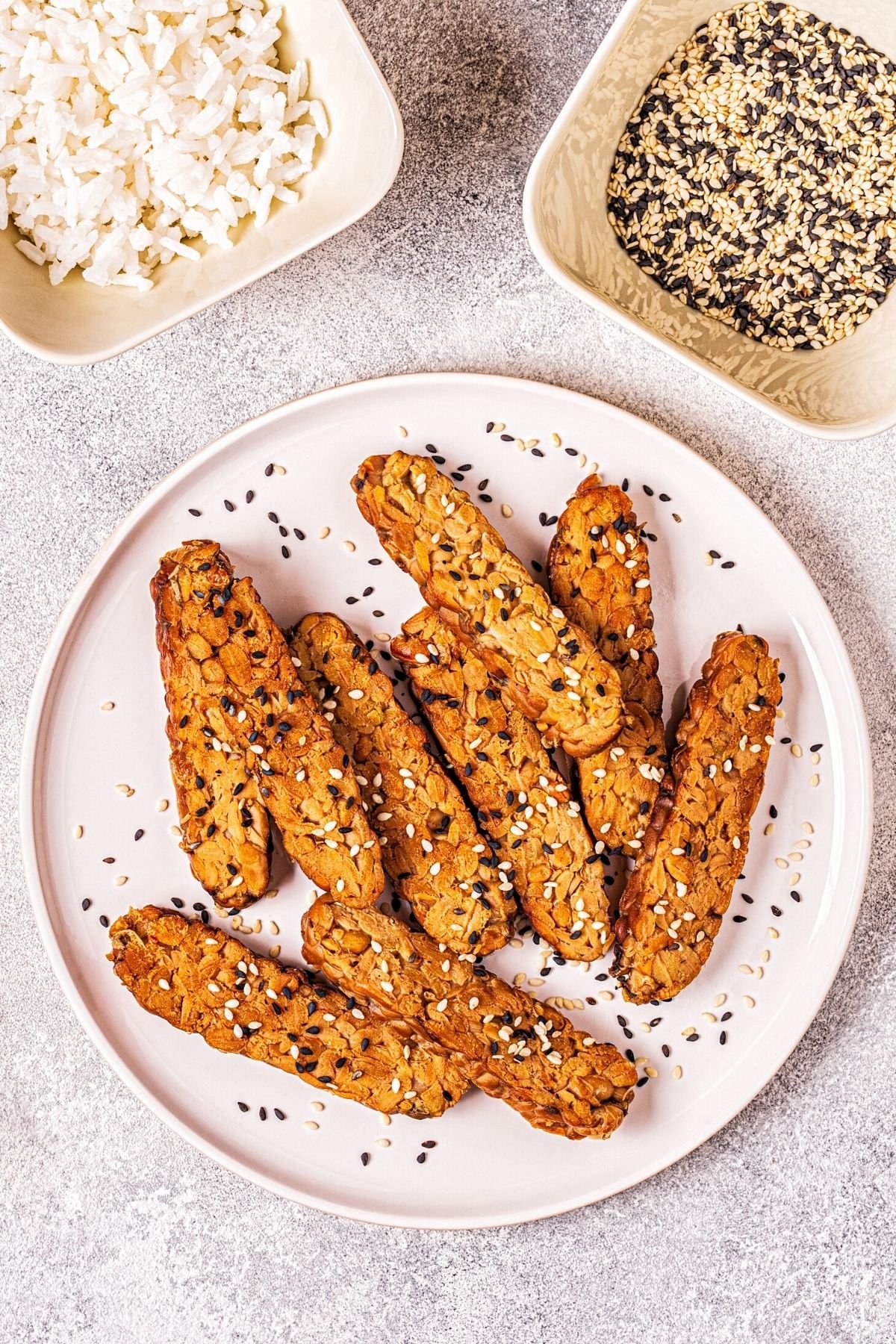
Tempeh is another soy-based probiotic food found originally within Japanese cuisine.
Made from fermented soybeans that are formed into a block or patty, tempeh is commonly used as a meat replacement in vegetarian or vegan cuisine because it is high in protein.
Rhizopus oligosporus and Lactobacillus plantarum are the probiotic strains in tempeh that greatly increase the digestibility and bioavailability of the soybeans. This fermented food has a strong earthy, nutty flavor and offers a plant-based source of protein, B vitamins, and Vitamin K.
Again, fermented soy products like miso and tempeh can be safer ways to eat soy.
7. Kombucha
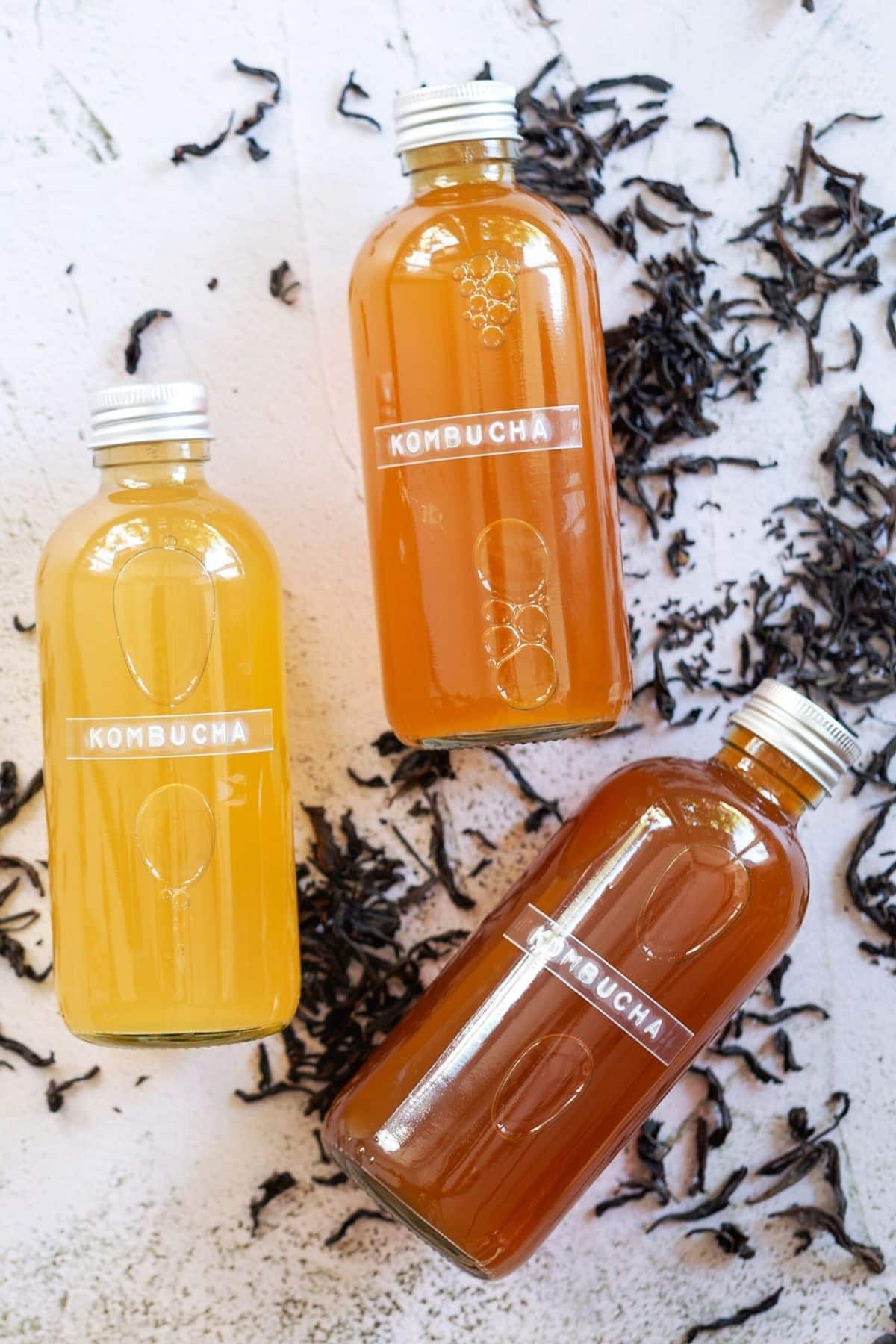
Kombucha is a trendy beverage that is made from black tea and sugar, and fermented from colonies of bacteria that originate from a SCOBY.
Kombucha has a vinegar or beer-like taste and a mild alcohol content (usually below 0.5% ABV.)
Partially due to its natural carbonation, kombucha is a popular alcohol or soda replacement and simply a fun, healthy drink that may offer a variety of health benefits for your overall health.
There isn’t as much evidence to completely claim kombucha as a health food, but it does contain polyphenols from the tea and some amount of B vitamins and Vitamin C, along with natural sources of probiotic content.
See my recipe for Sparkling Kombucha Lemonade.
8. Fermented Veggies
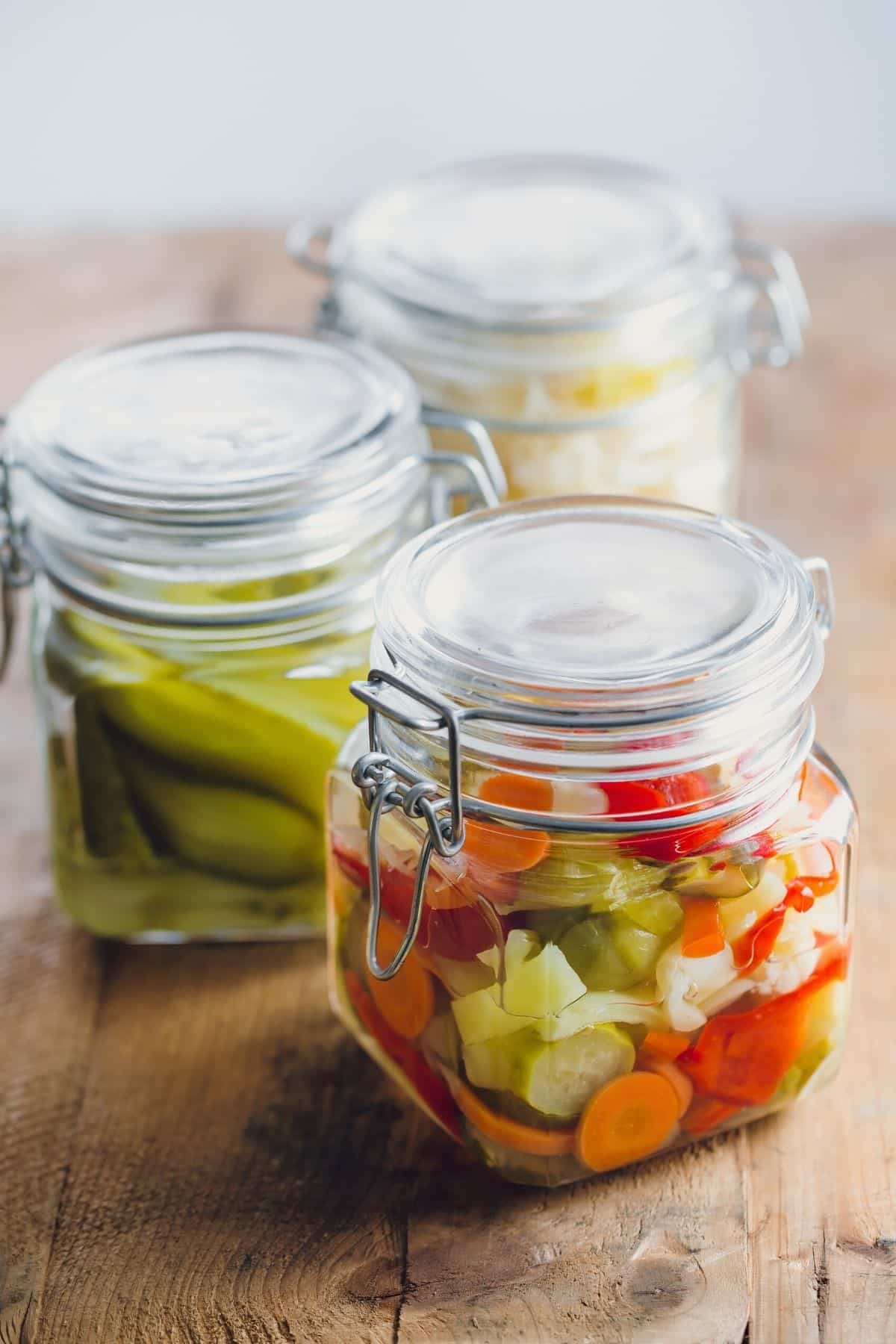
Cabbage isn’t the only veggie you can ferment! You can easily ferment nearly any vegetable as a way to get more natural probiotics into your diet and preserve food.
Nearly everything from carrots, to garlic, to cucumbers (aka, pickles!) are fermentable. The fermentation process populates the vegetables with beneficial probiotics and renders the micronutrients more bioavailable.
If you don’t want to make your own pickles, then you can buy pickles.
Not all pickles at the grocery store have probiotics, though. Look for brands sold in the refrigerator section that advertise that they include live probiotics. Otherwise, you may need to make your own.
9. Raw Cheese
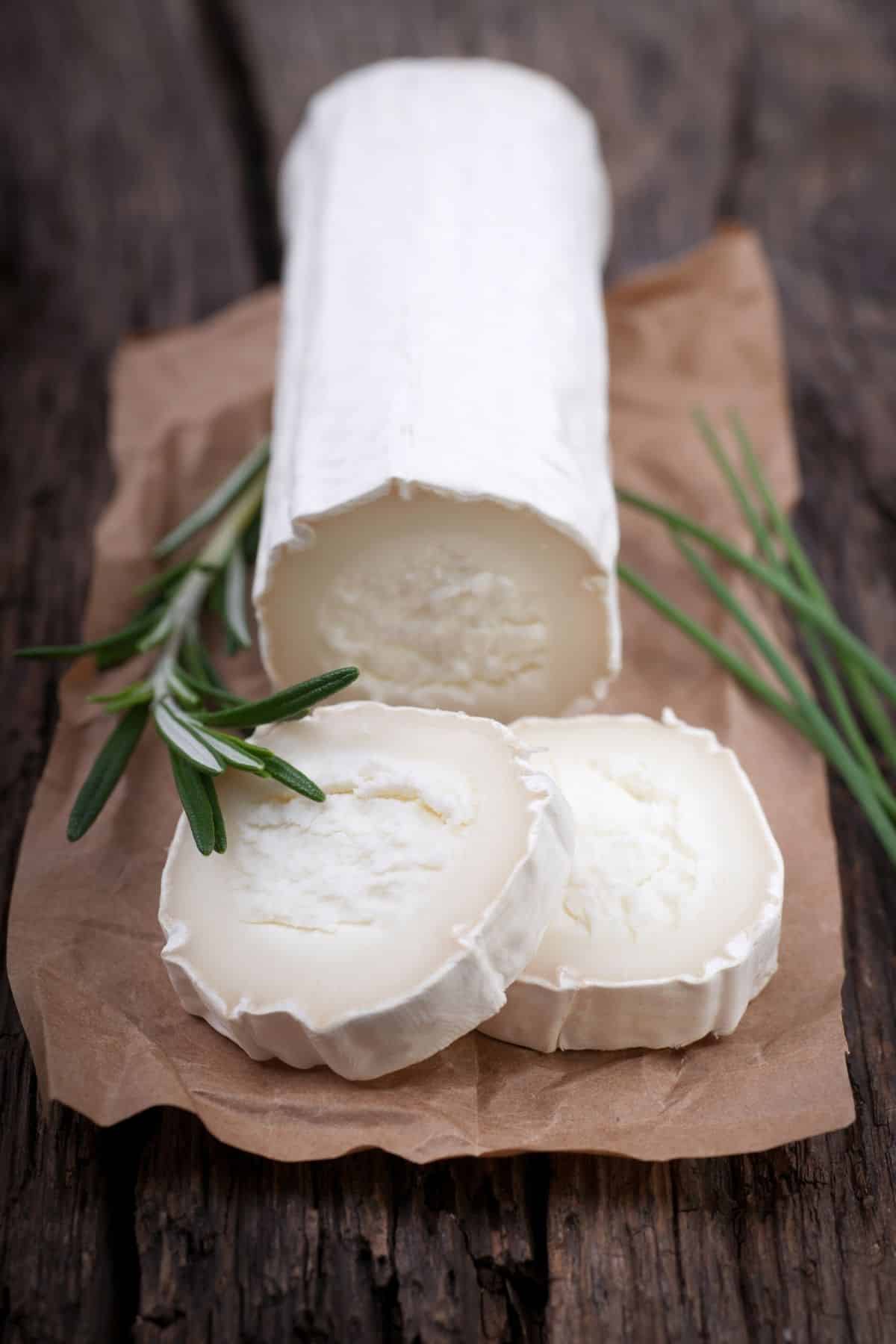
Unpasteurized cheese, also known as raw cheese, is a nutrient-dense source of probiotics. Because the bacteria, yeast, and naturally-occurring mold aren’t killed by pasteurization, good bacteria is allowed to flourish.
For my friends on a dairy-free diet, you can also find or make vegan cheese that have probiotics added.
10. Natto
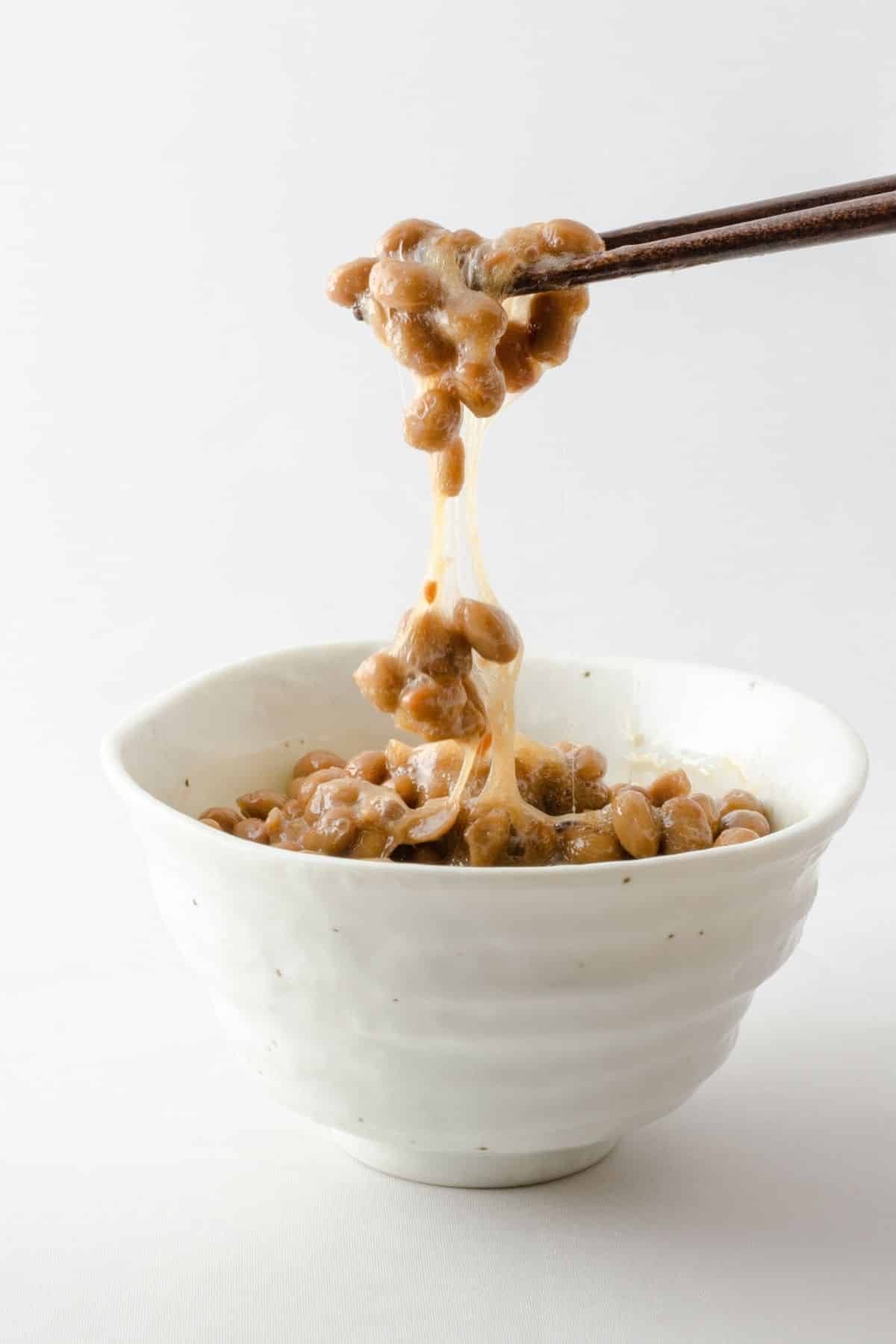
Another soybean-based fermented food, natto is a popular condiment and breakfast dish in Japan. Natto contains Bacillus subtilis and is either loved or hated. It has a very distinct flavor, smell, and texture.
Made from soaked and fermented whole soybeans, natto has a stringy, somewhat slimy texture.
Like other fermented soy products, natto is high in Vitamin K2, B vitamins, and calcium. It also contains nattokinase as an active ingredient, which has been linked to the prevention and treatment of cardiovascular disease.
BONUS: Sourdough
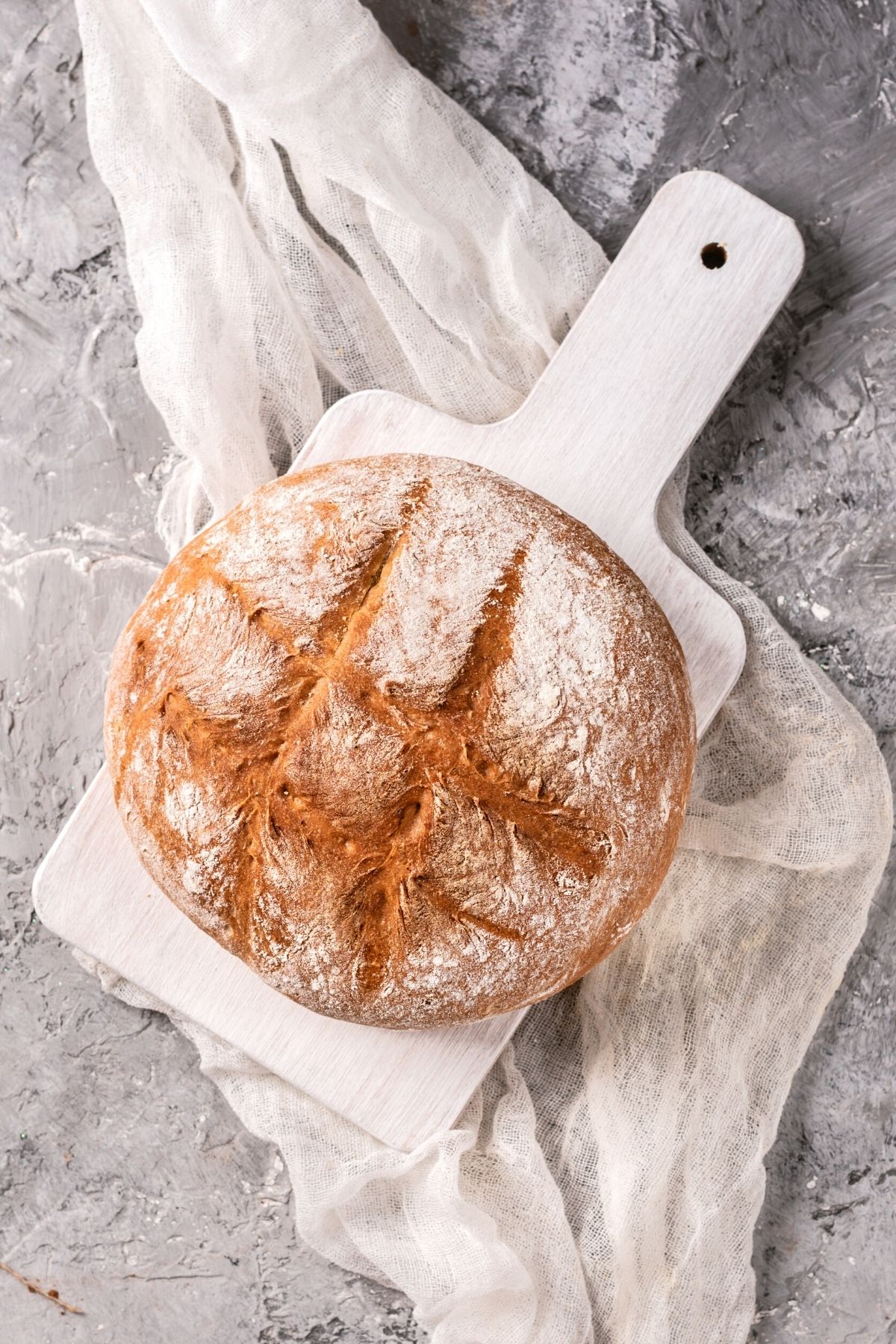
This traditionally-prepared bread is popular for its tangy taste. Sourdough bread is made from a probiotic culture and wheat (though some grain-free and gluten-free options are becoming more widely available.)
While sourdough isn’t a great source of probiotics, as the heat kills the bacteria, the fermentation process can make the gluten more easily digestible.
FAQs
Yes! Apple cider vinegar contains natural probiotics due to its fermentation process. This fermented vinegar is especially high in Lactobacillus, Oenococcus, Acetobacter, Komagataeibacter, and Gluconobacter acetic acids.
Keep in mind that apple cider vinegar is a potent product that should always be consumed diluted. Thus, it shouldn’t be relied upon as your only source of probiotics. You would have to drink a lot of apple cider vinegar to reap its benefits as a probiotic food source.
No, bananas don’t contain probiotics. They do contain prebiotics in small amounts, particularly green, unripe bananas.
Prebiotics are indigestible carbohydrates present in some foods; this prebiotic fiber is food for probiotics in your gut. Probiotics and prebiotics work synergistically to keep your gut well-populated and healthy.
Other natural food sources of prebiotics include: chicory, chocolate, almonds, garlic, onions, and leeks.
It depends! If you are diligent about including foods with natural probiotics in your daily diet, then you may not need a probiotic supplement. Speak with your doctor or healthcare provider about whether or not you need additional probiotics.
There are lots of dairy-free probiotic foods including dairy-free yogurts and kefirs, plus foods like sauerkraut, miso, kimchi, tempeh, and natto which are all naturally made without any dairy products. If you choose to use a probiotic supplement, be sure to read the label as many are made using milk.
More Resources for Gut Health
Conclusions
There are lots of natural and fermented foods that can help introduce healthy bacteria into your system. For the best results, try to get a wide variety of plant foods into your diet that will contain both prebiotics and probiotics.
It’s also a good idea for most people to take a probiotic supplement (although you should check with your healthcare provider before making any changes to your diet or supplement routine).
Don’t forget to join my newsletter list to get exclusive clean eating recipes and tips. The newsletter is 100% free with no spam; unsubscribe anytime.
About the Author: Carrie Forrest has a master’s degree in public health with a specialty in nutrition. She is a top wellness and food blogger with nearly 10 million annual visitors to her site. Carrie has an incredible story of recovery from chronic illness and is passionate about helping other women transform their health. Send Carrie a message through her contact form.
Note: this post is for informational purposes only and is not intended as medical advice. Please consult your healthcare provider for recommendations related to your individual situation.


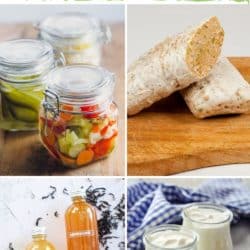
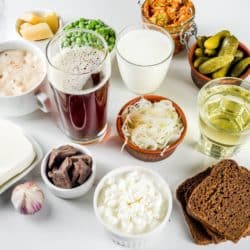
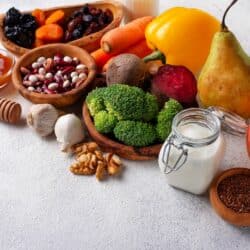
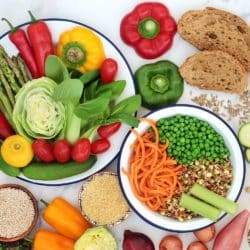




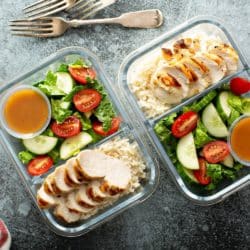
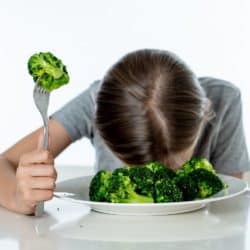
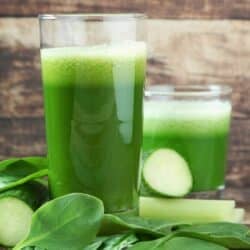


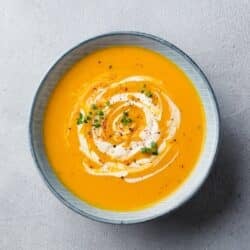
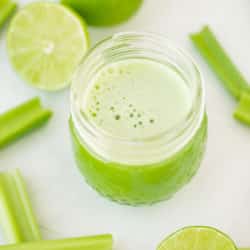

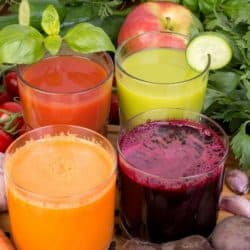


The foods listed here, especially fermented foods, are total no no’s on other low histamine sites. I’m very confused on what and how to eat to accomplish diminishing my histamine intolerance symptoms. Can you please tell me what the difference is between your protocol and the others that eliminate almost everything. thanks.
Hi Patsy, I don’t have a protocol because I’m not a nutritionist. But, if you are on a low histamine diet, then you should avoid fermented foods.
I stumbled across your website looking for solutions to histamine intolerance as I was recently diagnosed.( last week). From the what I have been able to gather, I need to stay away from fermented food, processed food, and high histamine foods. These includes: Sauerkraft, Vinegar, Banana, Spinach etc. I am in my 50s . How can probiotics help me. My intolerance has more to do with digestive issues, I tend to burp a lot and has this constant fullness in my stomach no matter how little I eat. I do often battle with constipation off and on.
These tips are so helpful and Iv really learnt a lot from this post! Thank you for sharing!
I didn’t know some of those listed had probiotics. It’s a good thing that I love eating kimchi and yogurt.
I was just literally talking about this the other day. I will deffo get looking into this more xx
Thanks for a wonderful article on Probiotics. I knew they are good for health but never knew so many benefits.
I try and include fermented foods into my diet daily! I love to make my own saurkraut too
I need to add more natural probiotics to my diet instead of the pills that I have been taking. Thank you for this information!
I take a pill for my probiotics. These are some great things to add in to my diet!
Wow! Very informative facts about probiotics! So nice! I hope to have probiotics again soon.